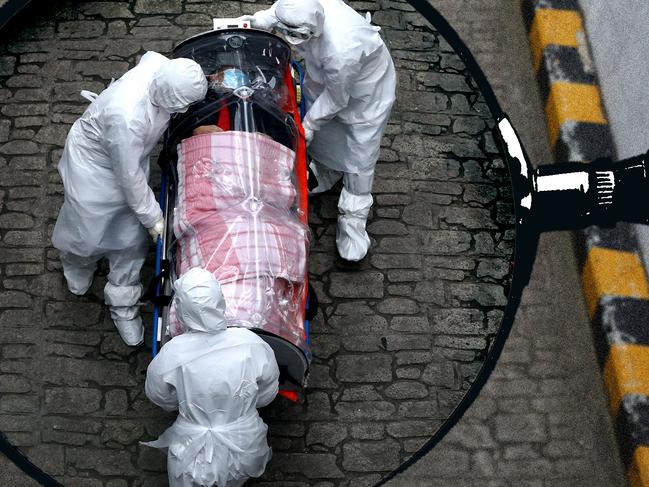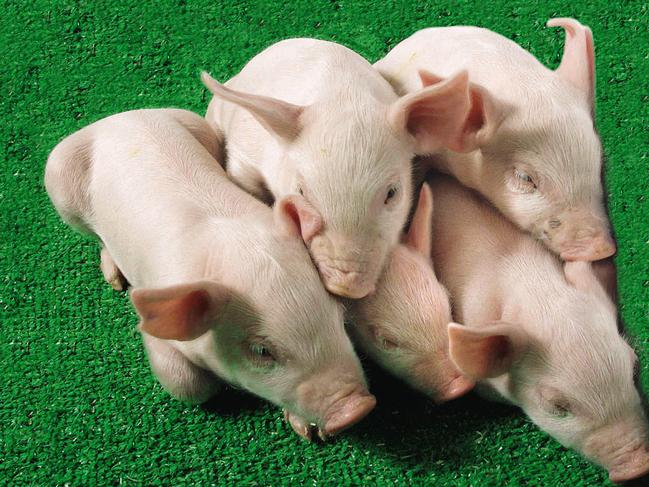TasmaniaNationTanya Plibersek has declined to act on new, high-level scientific advice a ‘priority’ endangered species will go extinct unless salmon farm impacts are reduced in a Tasmanian harbour before summer.
WorldThe largest rhino farm in the world, home to 2000 animals and located in South Africa, has been bought by NGO African Parks.
AFP
ExclusiveNationThe $35bn National Disability Insurance Scheme would better help kids with autism if it stopped taking a ‘medicalised’ approach, says the Actuaries Institute.
shedding lightWorldSaturday’s launch of solar probe Aditya – a week after landing on the Moon – could make India the first Asian nation to achieve a solar orbit.
AFP
exclusiveScienceCarbon emission estimates for some Australian dams have been massively overestimated, new research reveals.
agricultureNationAn undervalued part of the Australian farm could be used to reduce carbon emissions.
‘bottleneck’The TimesOur ancestors’ population fell to only 1280 ‘breeding individuals’ about 930,000 years ago, and remained this low for 117,000 years, research suggests.
Kaya Burgess
ExclusiveNationFluorescent drugs could be used to locate brain cancers and help surgeons remove them, an Australian study has found.
James Dowling
bad cholesterolScienceCardiologist Stephen Nicholls has designed a new treatment that lowers cholesterol levels by 65 per cent in patients who previously had no possible medical treatment.
James Dowling
sea floor mappedHigher EducationDeep diving Antarctic seals brought back new knowledge which is critical to predicting global warming,
ExclusiveNationAlbatross experts are warning of ‘catastrophe’ for the threatened seabirds unless the Albanese government adequately regulates Australia’s offshore wind farms.
emergency zoneScienceA second emergency zone has been designated on the southern NSW border after bee hives were discovered to be infested with varroa mites.
roadmapLifeScientists are examining how our bodies change as we age in the hope that it will lead to treatments that could help us live longer, healthier lives.
Dominique Mosbergen
HOT 50 INVENTIONSThe Weekend Australian MagazineTheir microneedle medical patch designed to monitor the efficacy of administered drugs is among the top Australian medical breakthroughs improving human health. | FULL LIST
HOT 50 INVENTIONSThe Weekend Australian MagazineIt was once the realm of science fiction. Now, a brain-computer interface developed by this Aussie team promises to revolutionise and reshape the way we communicate.
exclusiveScienceExperts say there is growing evidence to suggest MRI could help earlier detection of prostate cancer, the most commonly diagnosed invasive cancer in Australia.
world exclusiveWorldAs secret US labs scrambled to crack the source of Covid-19, one scientist stumbled upon a fragment that led directly to the Chinese lab.
biosecurityScienceEradicating bee-killing varroa mites in Australia is likely to be impossible after the latest infestation.
lake eyrePoliticsQueensland’s former chief scientist has called on the Palaszczuk government to ban all future oil and gas production in the waterways of the Lake Eyre basin, saying it would be ‘ecologically reckless’.
safety fearsNationAustralia’s new, problem-plagued $528m icebreaker can’t refuel in its home port of Hobart over fears it could slam into the Tasman Bridge.
spaceWorldIndia on Wednesday became the first nation to land a craft near the Moon’s south pole, a historic triumph for the world’s most populous nation and its ambitious, cut-price space program.
AFP
HOT 50 INVENTIONSThe Weekend Australian MagazineMethane-eating seaweed, avocados grown in a lab, and the march of the flat white towards World Domination. In the world of sustainability, food technology and dining, these Aussies are making a global impact. | FULL LIST
science shake-upHigher EducationTension between the US and China is severing the deep ties which the two nations established in science research.
Karen Hao and Sha Hua
space raceWorldRenewed ambitions for scientific research and deep-space exploration has sent nations and private companies racing to send devices to the surface of the moon. Sticking the landing is another story.
Micah Maidenberg
ExclusiveScienceOnline pharmacies selling female ‘egg timer’ products have used misleading advertising.
JAMES DOWLING
exclusiveScienceAs light pollution robs an ever-increasing number of humans of the primal joy of stargazing, a fledgling tourism industry is emerging, based on switching off and looking up.
WorldThe 40cm reptile has been given the scientific name Tachymenoides harrisonfordi.
AFP
scienceScienceTreatment for Parkinson’s, diabetes and cancer could be significantly advanced after scientists discovered a way to wipe the ‘genetic memory’ of artificially created embryonic-like stem cells.
MEDICAL BREAKTHROUGHMedicalThe family of a 50-year-old man who was declared brain dead allowed researchers to implant kidneys from a genetically modified pig to restore kidney function.
Swedish studyThe TimesResearch has found an active childhood can cut your chance of getting several types of cancer by up to 40 per cent.
Kat Lay






























